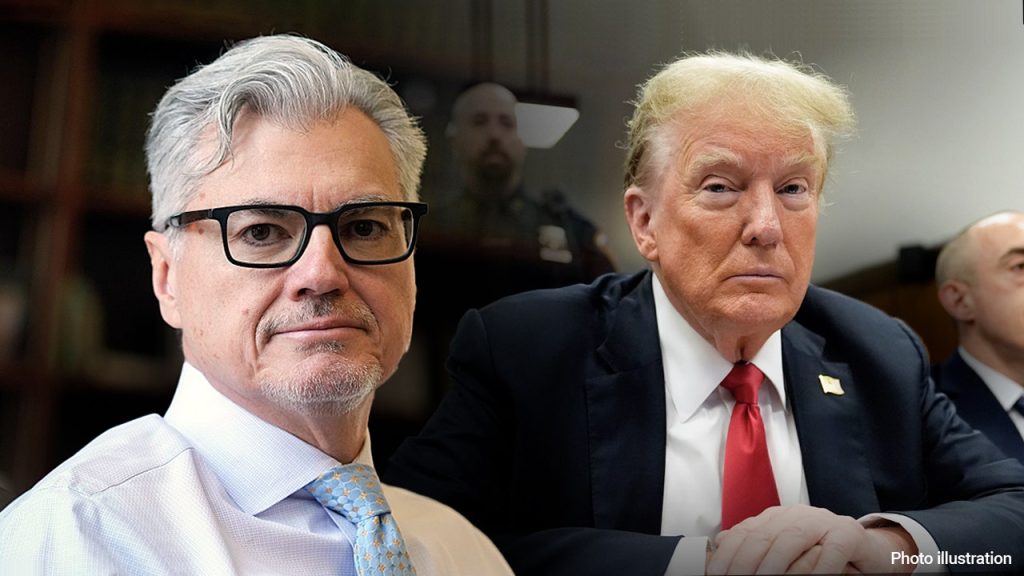Former President Donald Trump vehemently denounced Judge Juan Merchan’s decision to uphold his conviction in the New York v. Trump case and schedule his sentencing for January 10th, just days before his planned inauguration as the 47th President. In an exclusive interview with Fox News Digital, Trump labeled the proceedings a “political witch hunt” orchestrated by Democrats and the Department of Justice, driven by a desire to extract a “pound of flesh” after previous legal challenges against him failed. He criticized Judge Merchan as “corrupt” and “conflicted,” accusing him of fabricating a case to benefit his political opponents. Trump maintained his innocence, echoing the opinions of legal experts who have questioned the merits of the case. He also decried the gag order imposed by Judge Merchan, which restricts his ability to discuss aspects of the case, including the judge’s daughter’s connections to Democratic political campaigns.
Trump’s condemnation of the legal proceedings extended beyond Judge Merchan’s actions. He reiterated his belief that the case is politically motivated, orchestrated by President Biden and the DOJ, and driven by a desire to damage his reputation and political prospects. He pointed to the dismissal of other cases against him, including those brought by Special Counsel Jack Smith related to classified documents and alleged election interference, as evidence of a pattern of politically motivated prosecutions. Trump further criticized the gag order, arguing it infringes upon his free speech rights and prevents him from addressing what he perceives as conflicts of interest involving Judge Merchan. He highlighted the judge’s daughter’s role in a political consulting firm that has worked for prominent Democrats, suggesting a potential bias in the judge’s handling of the case.
The timing of the sentencing, just days before Trump’s planned inauguration, further fuels his claims of political interference. He argues that the legal proceedings are designed to disrupt the presidential transition and hinder his ability to fulfill his duties as president. Trump’s spokesperson, Steven Cheung, echoed these concerns, calling the case “lawless” and demanding its immediate dismissal. He argued that the sentencing violates Supreme Court precedent on presidential immunity and undermines the smooth functioning of the presidential transition process. Cheung emphasized the need for Trump to focus on the vital tasks of the presidency without the distraction of ongoing legal battles.
Trump’s critique of the legal process extends to other jurisdictions as well. He cited the dismissal of the federal case related to classified documents in Florida, attributing it to the unlawful appointment of Special Counsel Jack Smith. He also highlighted the dismissal of the election interference case brought by Smith and the recusal of Fulton County District Attorney Fani Willis in the Georgia election interference case, further bolstering his narrative of politically motivated prosecutions. Trump emphasized the alleged corruption within Willis’s office, referencing her relationship with a former prosecutor, and called for an apology to all those affected by the case.
The ongoing legal battles underscore the complex and contentious relationship between Trump and the judicial system. His repeated allegations of politically motivated prosecutions and judicial bias have become a central theme of his political discourse, shaping his interactions with the legal system and influencing public perception of the ongoing legal proceedings. The timing of the New York sentencing, coinciding with his planned return to the presidency, adds another layer of complexity to the already fraught political landscape.
Trump’s legal challenges, coupled with his planned return to the presidency, create a unique and unprecedented situation in American political history. The convergence of these events raises important questions about the intersection of law, politics, and presidential power. The ongoing legal saga surrounding Trump, including the New York case, the dismissed federal cases, and the Georgia case, will continue to shape the political narrative and influence public discourse in the coming months and years.

